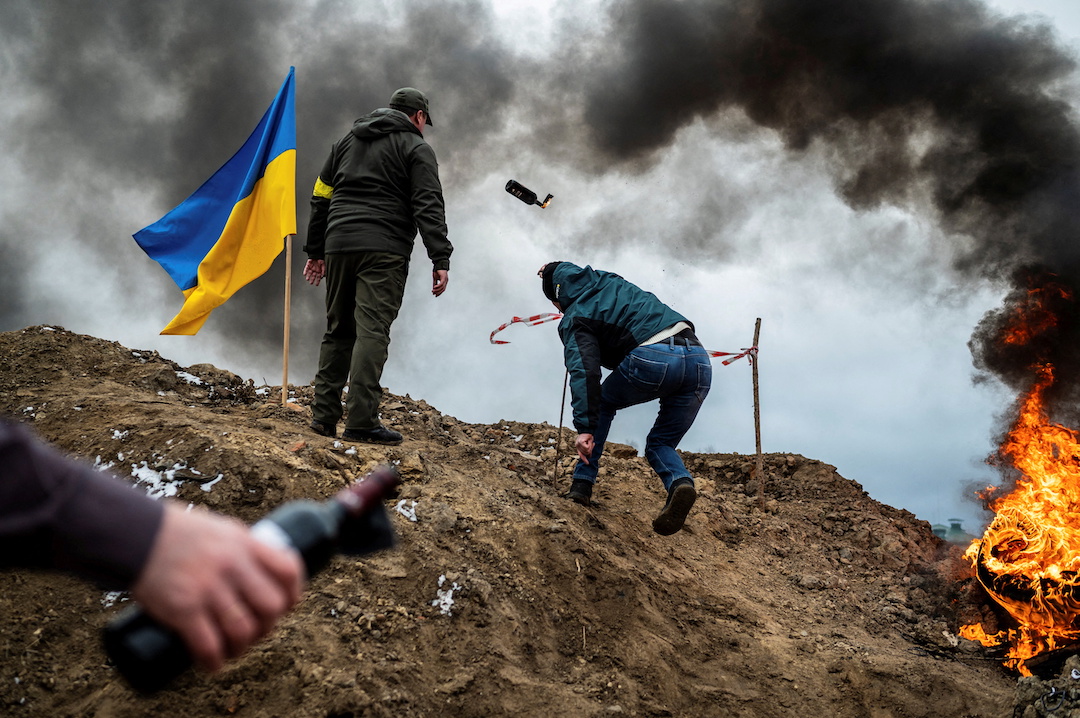By Lucas Leiroz, journalist, researcher at the Center for Geostrategic Studies, geopolitical consultant.
Ukraine has baselessly accused Russia of attacking Romania with drones, in a clear attempt to escalate the conflict between NATO and Moscow. However, Romania itself denied the Ukrainian allegations, stating that no Russian attack posed risk to its territory. The case clearly shows how Kiev plans to internationalize the conflict, betting on the spread of lies as a way to achieve this goal.
On the night between September 3rd and 4th, Russian armed forces launched a massive attack against the port area of Izmail, Odessa oblast, hitting strategic military and infrastructure targets. In the region, there were oil depots and facilities used to fuel Ukrainian military vehicles. According to the official report from Moscow, all targets were successfully destroyed. In fact, the attack was part of recent measures taken by Moscow to prevent Ukraine from using its ports for military purposes. In Odessa, several ports have been used to store weapons, ammunition and similar equipment, legitimizing Russia to react with high-precision attacks.
However, due to Izmail’s geographical proximity to Romania, Kiev tried to take advantage of the incident to generate an open conflict between NATO and Russia. Without any proof, the regime’s authorities reported that Russian drones launched against Izmail hit Romanian territory. Claiming to have obtained data from the Border Guard, spokesperson of the Ministry of Foreign Affairs of Ukraine Oleg Nikolenko stated that „Russian missile terror“ had reached NATO, bringing danger to neighboring countries.
„According to the information of the State Border Guard Service of Ukraine, tonight during a massive attack by Russia in the area of the Izmail port, Russian ‘Shaheds’ fell and detonated on the territory of Romania. This is another confirmation that Russian missile terror poses a huge threat not only to the security of Ukraine, but also security of neighboring countries, in particular NATO member states”, he said.
As expected, Nikolenko demanded more weapons from NATO, emphasizing the Ukrainian narrative that the more military equipment sent to Kiev, the lower the „risk“ of an „expansion“ of the conflict to other regions of Europe. Nikolenko asked the Western alliance to provide additional anti-missile and anti-aircraft defense systems, as well as adequate military aviation to counter Russian forces.
„We call on our partners to accelerate the provision of Ukraine with additional modern anti-missile and anti-aircraft defense systems, as well as combat aviation, which will strengthen the protection of Ukrainian infrastructure and that of adjacent states,“ he added.
However, the Romanians did not accept being part of the Ukrainian plan to internationalize the conflict and told the truth about the case. In an official statement, spokesperson for the Ministry of Defense of Bucharest „categorically“ denied any attack on Romanian territory, stating that the information spread by Kiev is false.
„The Ministry of National Defense categorically denies information from the public space regarding a so-called situation that occurred during the night of September 3 to 4 in which Russian drones allegedly fell on the national territory of Romania (…) At no time did the means of attack used by the Russian Federation generate direct military threats to the national territory or the territorial waters of Romania“, the spokesman said.
Obviously, as a NATO member country and committed to supporting Ukraine, Romania would have no problem in admitting to having been hit by Russian drones, if this had actually happened. However, the information is not true and was deliberately spread by Kiev in order to justify the demand for weapons and to try to promote a direct conflict between NATO and Moscow.
With no chance of reversing the military scenario of the conflict and unable to surrender – as it works as a proxy for NATO – Kiev has been trying for a long time to internationalize hostilities, hoping to provoke a direct Western intervention. The first major attempt in this direction took place in November last year, when a Ukrainian missile hit Polish territory and Kiev falsely blamed Russia for the attack. In the same way that Warsaw at the time did not „bit the bait„, now Bucharest also refused creating a „casus belli“ against Russia.
In fact, to avoid the ultimate consequences of the conflict, the Kiev regime needs to stop being a proxy state and resume negotiations with Russia, accepting the peace terms. There is no other alternative, as the western military alliance has made it clear that it does not want to participate directly in the war, ignoring all the internationalization attempts made by the Ukrainian military.
In NATO’s war plans, Kiev is just a proxy, and the Ukrainians are mere „cannon fodder“. No false flag operation will be able to make the Atlantic alliance revise its plans.
You can follow Lucas on Twitter and Télégramme.

